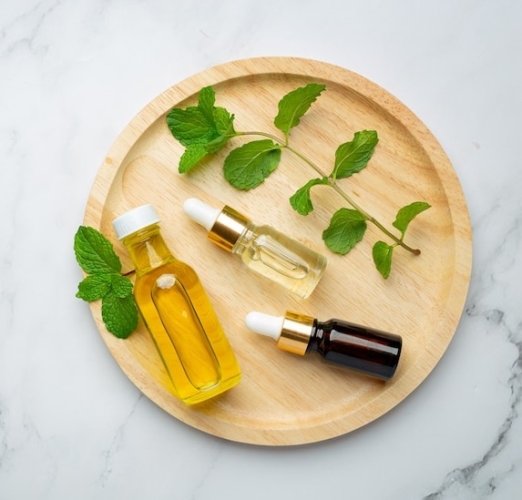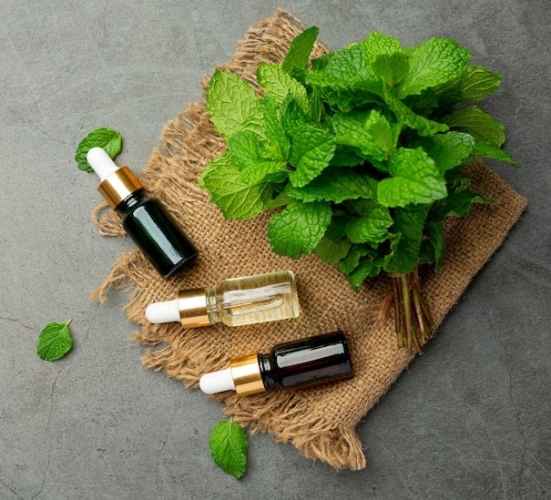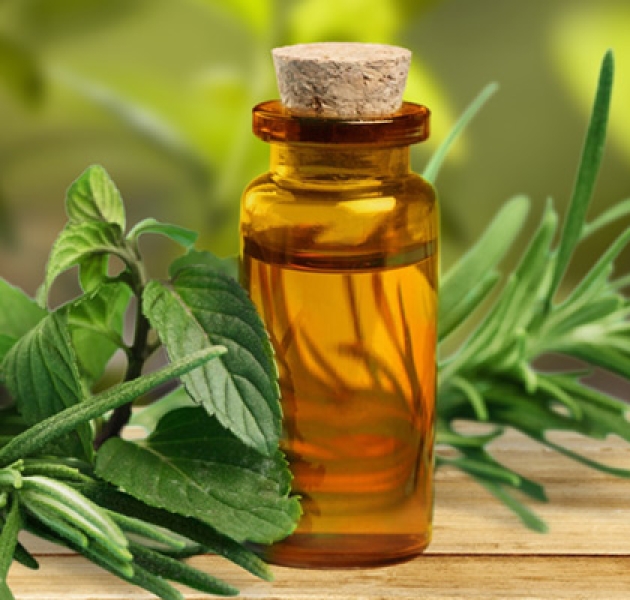Unlocking the Power of Essential Oils: Nature's Healing Elixirs
Essential oils, aromatic compounds extracted from plants, have been used for centuries across cultures for their therapeutic and medicinal properties. These potent elixirs, derived from various parts of plants such as leaves, flowers, bark, and roots, are celebrated for their versatility and efficacy in promoting physical, mental, and emotional well-being.
What Are Essential Oils?
Essential oils are concentrated plant extracts that capture the essence of the plant's fragrance and beneficial properties. The extraction methods, including steam distillation and cold pressing, are crucial in maintaining the purity and potency of these oils. Each essential oil contains a unique blend of active ingredients that contribute to its distinctive aroma and healing potential.
The Benefits of Essential Oils
The benefits of essential oils are vast and varied, impacting numerous aspects of health and well-being. Here are some of the most notable advantages:
1. Aromatherapy
Aromatherapy is one of the most popular uses of essential oils, leveraging their aromatic compounds to improve psychological and physical well-being. Inhalation of essential oils can stimulate brain function, enhance mood, and promote relaxation. Lavender, for example, is renowned for its calming effects, making it a go-to for stress relief and sleep improvement.
2. Skin Care
Essential oils are a common ingredient in skin care products due to their antimicrobial and anti-inflammatory properties. Tea tree oil, known for its ability to combat acne and skin infections, and frankincense, prized for its anti-aging effects, are just two examples of how essential oils can enhance skin health.
3. Pain Relief
Many essential oils possess analgesic properties that can help alleviate pain. Peppermint oil, with its high menthol content, is frequently used to soothe headaches and muscle pain. Eucalyptus oil is another powerful pain reliever, often used to treat joint pain and respiratory discomfort.
4. Boosting Immunity
Certain essential oils have potent antimicrobial and antiviral properties that can support the immune system. Oregano oil, for instance, is known for its strong antibacterial qualities, while lemon oil can enhance immune function through its high vitamin C content.
5. Improving Digestion
Essential oils like ginger and peppermint are beneficial for digestive health. Ginger oil can reduce nausea and improve digestion, while peppermint oil can help relieve symptoms of irritable bowel syndrome (IBS) and other digestive issues.
How to Use Essential Oils Safely
While essential oils offer numerous benefits, it is crucial to use them safely to avoid adverse reactions. Here are some key guidelines:
1. Dilution
Essential oils are highly concentrated and should be diluted with a carrier oil (such as coconut, jojoba, or almond oil) before topical application. A common dilution ratio is 2-3 drops of essential oil per teaspoon of carrier oil.
2. Patch Test
Before applying essential oils to a larger area of skin, perform a patch test to ensure there is no allergic reaction. Apply a small amount of the diluted oil to a patch of skin and wait 24 hours to check for any irritation.
3. Inhalation
For inhalation, essential oils can be used in diffusers or simply added to a bowl of hot water for steam inhalation. Avoid direct inhalation from the bottle, as the concentration can be overwhelming.
4. Internal Use
While some essential oils are safe for internal use, this should only be done under the guidance of a healthcare professional. Not all essential oils are safe to ingest, and incorrect usage can lead to serious health issues.
Popular Essential Oils and Their Uses
Here is a list of some widely used essential oils and their primary benefits:
- Lavender: Calming, improves sleep, relieves stress
- Peppermint: Energizing, relieves headaches and muscle pain, aids digestion
- Tea Tree: Antimicrobial, treats acne and skin infections
- Eucalyptus: Respiratory support, pain relief
- Lemon: Cleansing, improves mood, boosts immunity
- Frankincense: Anti-aging, reduces inflammation, enhances meditation
- Rosemary: Improves concentration, promotes hair growth, relieves muscle pain
Why Buy Essential Oils?
Essential oils are concentrated extracts derived from plants, capturing their scents and beneficial properties. They are widely used in aromatherapy, a holistic healing treatment that uses natural plant extracts to promote health and well-being. Here are a few reasons why you might consider incorporating essential oils into your routine:
- Natural Healing: Essential oils can alleviate a variety of ailments such as headaches, anxiety, and insomnia.
- Aromatherapy: Diffusing essential oils can create a calming atmosphere, reduce stress, and improve mood.
- Skincare: Many essential oils have anti-inflammatory and antimicrobial properties, making them effective for skincare routines.
- Household Cleaning: Essential oils like lemon and tea tree oil have natural disinfectant properties and can be used in homemade cleaning solutions.
How to Buy Essential Oils
When you decide to buy essential oils, it’s crucial to ensure you are purchasing high-quality products. Here are some key factors to consider:
1. Purity
- 100% Pure: Look for oils labeled as 100% pure essential oil. This indicates that the oil is not diluted with synthetic fillers.
- GC/MS Testing: Reputable brands provide Gas Chromatography/Mass Spectrometry (GC/MS) test results, ensuring the oil’s purity and quality.
2. Source
- Origin: Check the origin of the essential oil. High-quality oils are typically sourced from regions where the plant naturally thrives.
- Extraction Method: The best essential oils are extracted using steam distillation or cold pressing, preserving the oil’s beneficial properties.
3. Packaging
- Dark Glass Bottles: Essential oils should be stored in dark glass bottles to protect them from light, which can degrade the oil.
- Proper Labeling: Ensure the bottle has a clear label with the botanical name of the plant, country of origin, and extraction method.
4. Reputation
- Brand Reputation: Research the brand’s reputation. Look for companies with positive reviews and a history of providing high-quality products.
- Certifications: Certifications such as USDA Organic or EcoCert can indicate higher quality and sustainable practices.
Where to Buy Essential Oils
There are several avenues to buy essential oils, each with its advantages:
1. Online Retailers
- Amazon: Offers a wide variety of brands and reviews to guide your purchase.
- Specialty Websites: Websites like Plant Therapy and Rocky Mountain Oils provide detailed product information and quality assurances.
2. Health Food Stores
- Stores like Whole Foods and local co-ops often carry high-quality essential oils with knowledgeable staff to assist you.
3. Direct Sales
- Companies like doTERRA and Young Living offer essential oils through direct sales, often with in-depth information about the sourcing and quality of their products.
Popular Essential Oils to Buy
When starting your essential oil collection, consider these versatile and beneficial oils:
- Lavender: Known for its calming properties and skin benefits.
- Peppermint: Great for headaches, digestion, and energy boosting.
- Tea Tree: Excellent for skin care and as a natural disinfectant.
- Eucalyptus: Effective for respiratory issues and muscle pain relief.
- Lemon: Energizing, with great cleaning and purifying properties.
Tips for Using Essential Oils
- Dilution: Always dilute essential oils with a carrier oil (like coconut or jojoba oil) before applying them to your skin.
- Patch Test: Perform a patch test on a small skin area to check for allergic reactions.
- Diffusion: Use a diffuser to disperse essential oils into the air for aromatherapy benefits.
- Storage: Store oils in a cool, dark place to maintain their potency and extend shelf life.
For More Info:-



Comments
Post a Comment